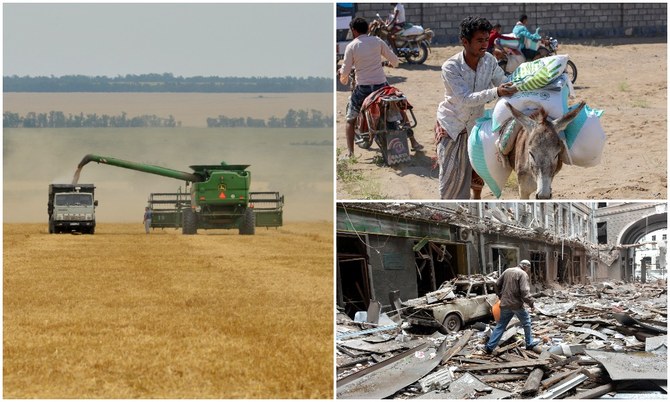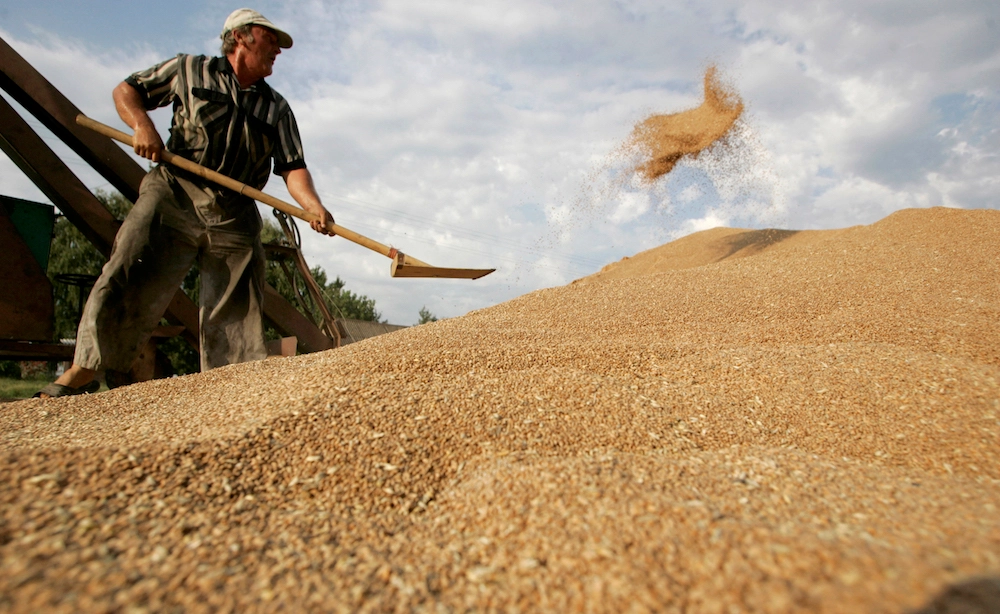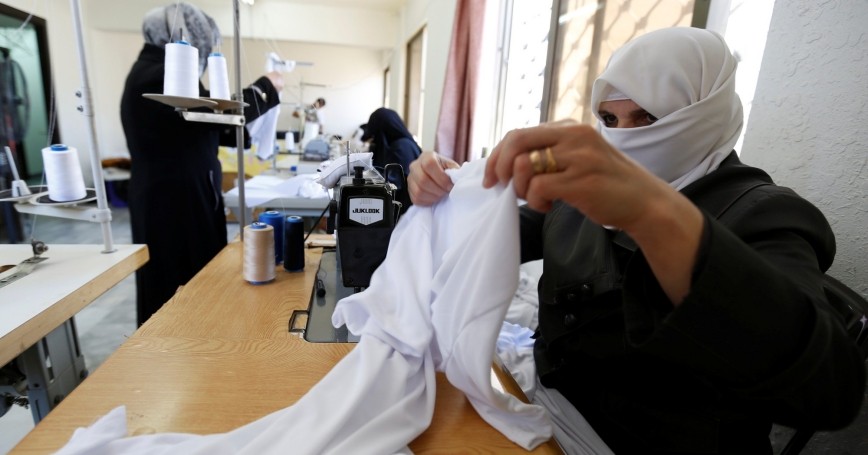RAMALLAH: Authorities in Jordan and Israel are considering setting up a joint regional stockpile for food and wheat reserves against the backdrop of the war in Ukraine, according to Israeli media reports.
The KAN TV channel reported that King Abdullah of Jordan proposed the project during his meeting with Israeli President Isaac Herzog in Amman in late March. It is still in the early planning stages, the channel added, but Israel, Jordan, Egypt and the Palestinian Authority could be part of it and any country suffering from food shortages would be able to draw from the stockpile.
However, some observers have warned that the Palestinian Territories might benefit little from such an arrangement because they do not have the proper infrastructure required for storing wheat flour.
Wheat flour reserves in the Occupied Territories could be exhausted within three weeks, according to the charity Oxfam, and the cost of the food staple has soared by nearly 25 percent as a result of the war in Ukraine.
“Palestinian households are being hit hard by rising global food prices and many are struggling to meet their basic needs,” said Shane Stevenson, Oxfam’s country director in the Occupied Palestinian Territory and Israel.
“The reliance on imports and the constraints forced upon them by Israel’s continuing military occupation, settler violence and land grabs are compounding the food crisis.”
The Palestinian Authority has to import 95 percent of its wheat but owns no food-storage infrastructure and so is forced to rely instead on the Palestinian private sector and Israeli facilities. Meanwhile, Israel imports half of its grain and cereals from Ukraine.
According to the World Food Program, the Ukraine crisis has resulted in increased prices for grain and other food items in the Palestinian Territories. It said that the cost of wheat flour has risen by 23.6 percent, corn oil by 26.3 percent, lentils by 17.6 percent, and table salt by 30 percent, all of which is having a significant effect on Palestinians’ purchasing power.
The organization said that most families in Gaza are buying food on credit and eating lower-quality food in smaller quantities. As prices have risen they have cut back on purchases of more expensive food such as fruit, meat and chicken, which are essential components of a healthy diet.
READ MORE
Food-insecure Arab countries rely heavily on Black Sea grain imported from Russia and Ukraine, who controlled 30 percent of global wheat exports in 2021, but with the two countries locked in conflict, concerns are growing. Read more here.

Meanwhile, an increase in feed prices of about 60 percent has added to the burden on Palestinian livestock breeders, who already face other challenges such as diseases affecting their animals, increasing attacks by settlers on Palestinian pastoral lands, and forced relocation due to Israeli annexation and expansion policies in the West Bank. Breeders have appealed to the Palestinian Authority to abolish the value-added tax on feed to offset rising prices.
Mazen Sinokrot, regional director of the Federation of Arab Food Industries, said that Palestine cannot rely on Israeli food reserves in times of crises.
Samir Hulileh, a Palestinian former deputy minister of economy, told Arab News: “The PA does not import wheat directly from Ukraine because the import is carried out in large quantities. Therefore, the import is carried out through Israel, which makes the price higher and gives major Israeli importers the ability to control the price.
“And since Palestine does not have ports or suitable storage warehouses for grain, establishing warehouses near the crossings with Israel was proposed to store wheat and all kinds of grain but the project has not been implemented so far.”
He added: “What is stated in the Oxfam report is correct, as wheat and flour that is available for Palestinians is what is there in the stores of Palestinian merchants. As long as there is a stock of grain in Israel, the Palestinians who import from Israel and depend on it will not suffer. But if Israel faced a problem importing wheat and grains, the PA will inevitably suffer.”
Hulileh expressed concern about the Jordanian-Israeli regional stockpile proposal because it refers to the Palestinian Authority as a subordinate to Israel rather than an independent entity. He said it should be a tripartite agreement, not a bilateral deal, because the needs of the Palestinian Authority sometimes differ from the requirements of Israel.
“We must be an independent party to any agreement and not an affiliated party,” he told Arab News.
He urged the Palestinian Ministry of Agriculture to encourage Palestinian farmers to grow grain in Area C, which constitutes about 60 percent of the land in the West Bank, to meet at least part of the Palestinian demand at a reasonable price. He also suggested that the ministry buy crops from the farmers at a suitable price.
“The moment that Israel faces a crisis in importing wheat and grain, we will definitely face a crisis in the Palestinian territories,” Hulileh warned.
Oxfam has called on the international community to urgently adopt a joint, coordinated economic and diplomatic position that challenges Israel’s restrictive policies and allows Palestinians to invest in local food production and infrastructure development.
Abbas Melhem, the head of the Palestinian Farmers Union, said the livestock sector is being destroyed and needs support before it collapses entirely. The union has called on Palestinian Prime Minister Mohammed Shtayyeh to take urgent action to save the sector.







